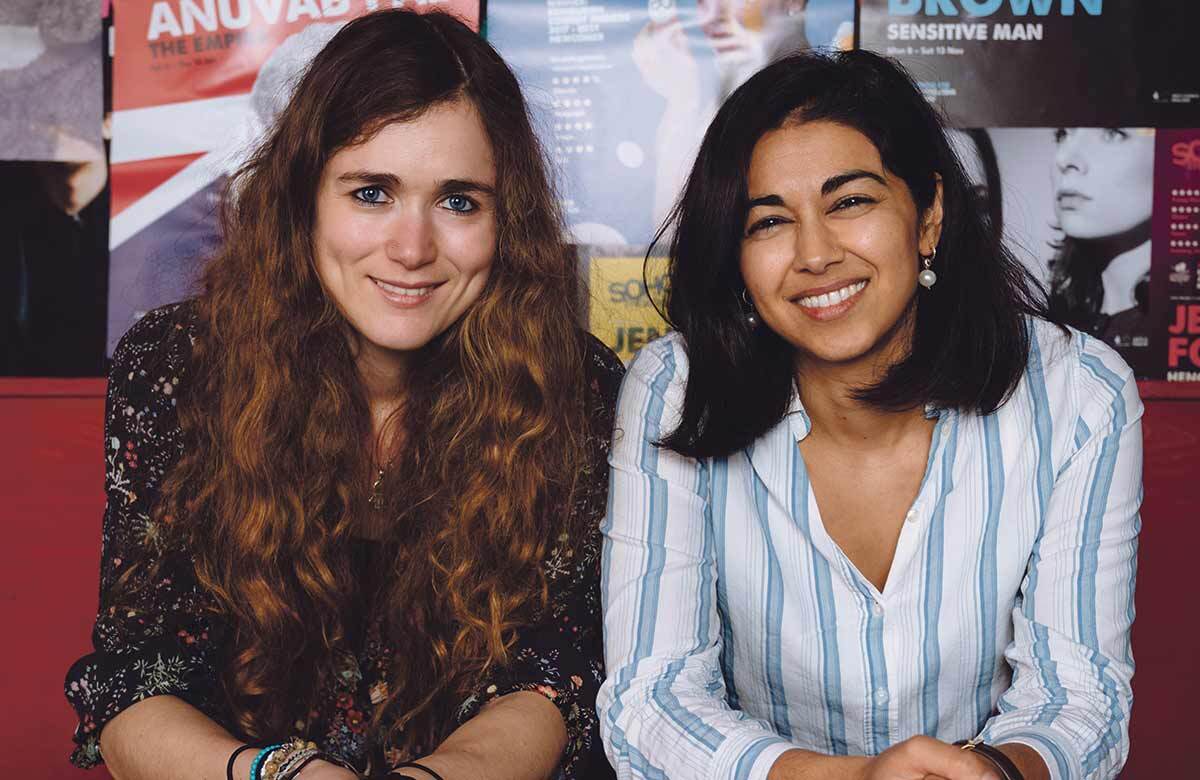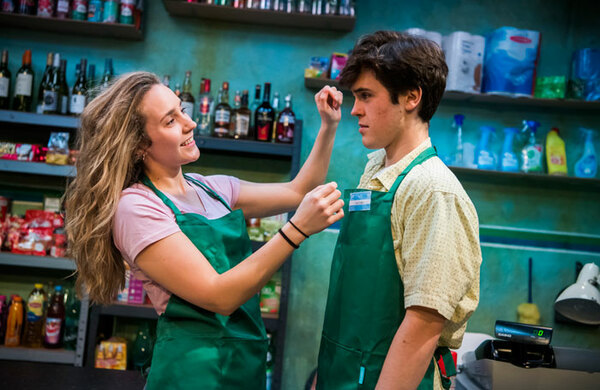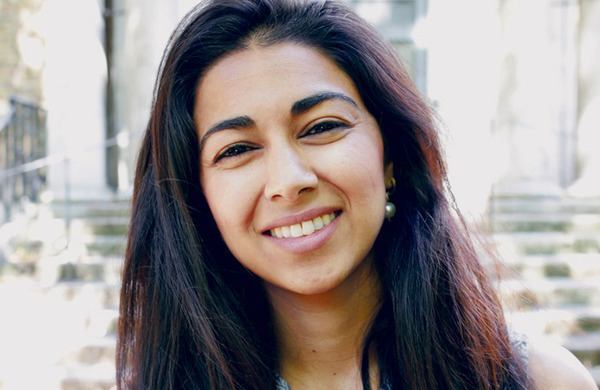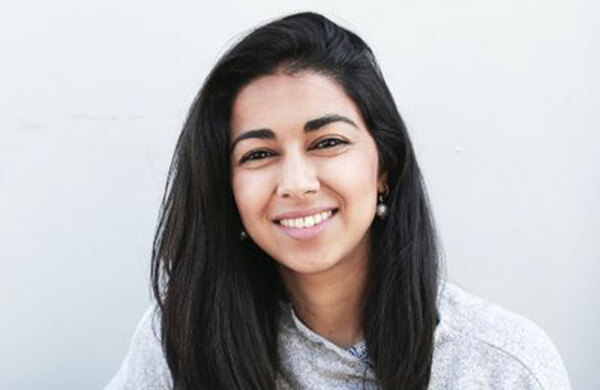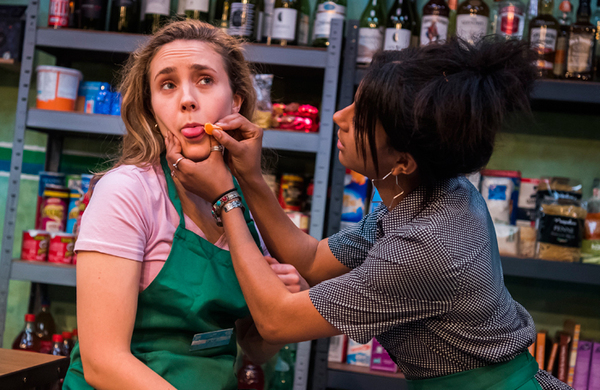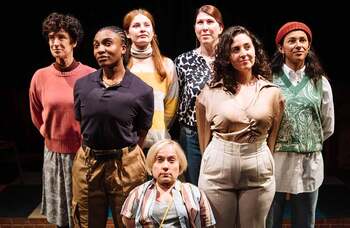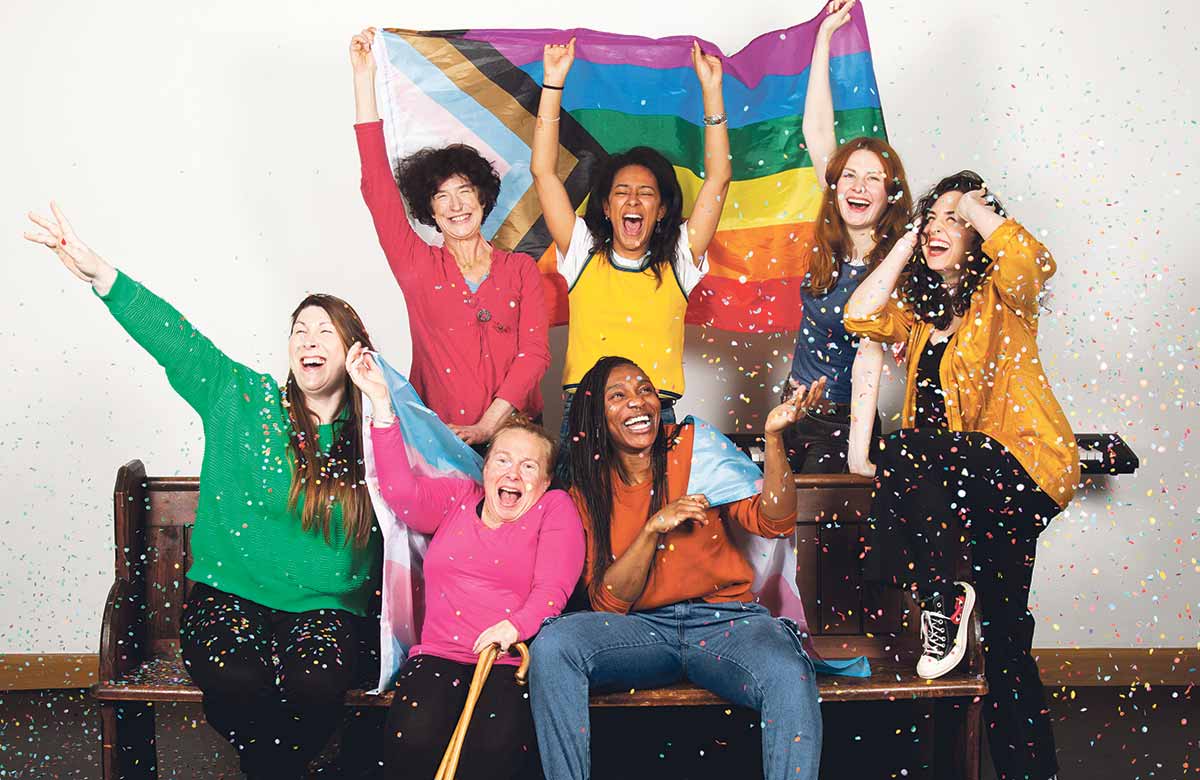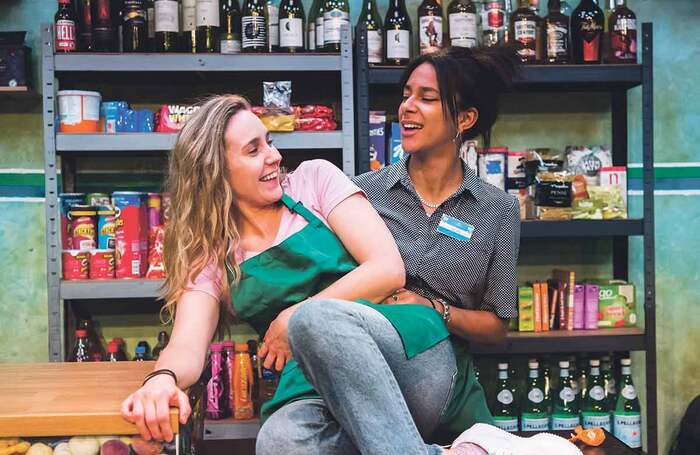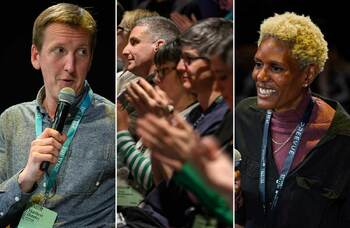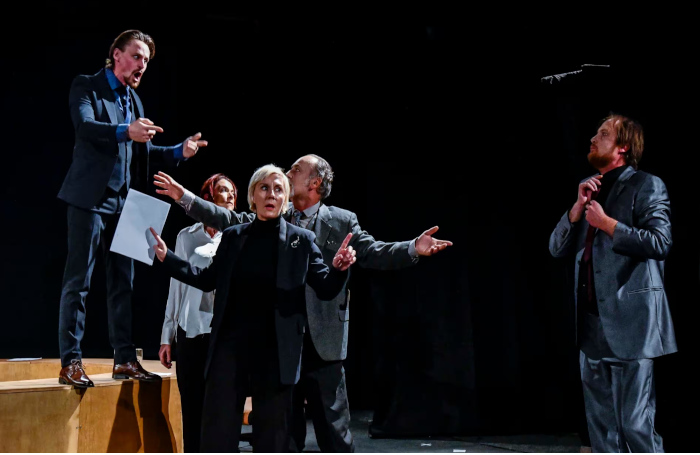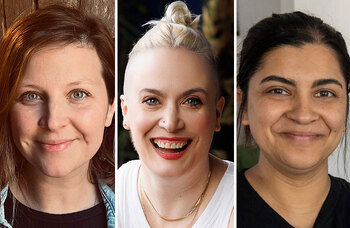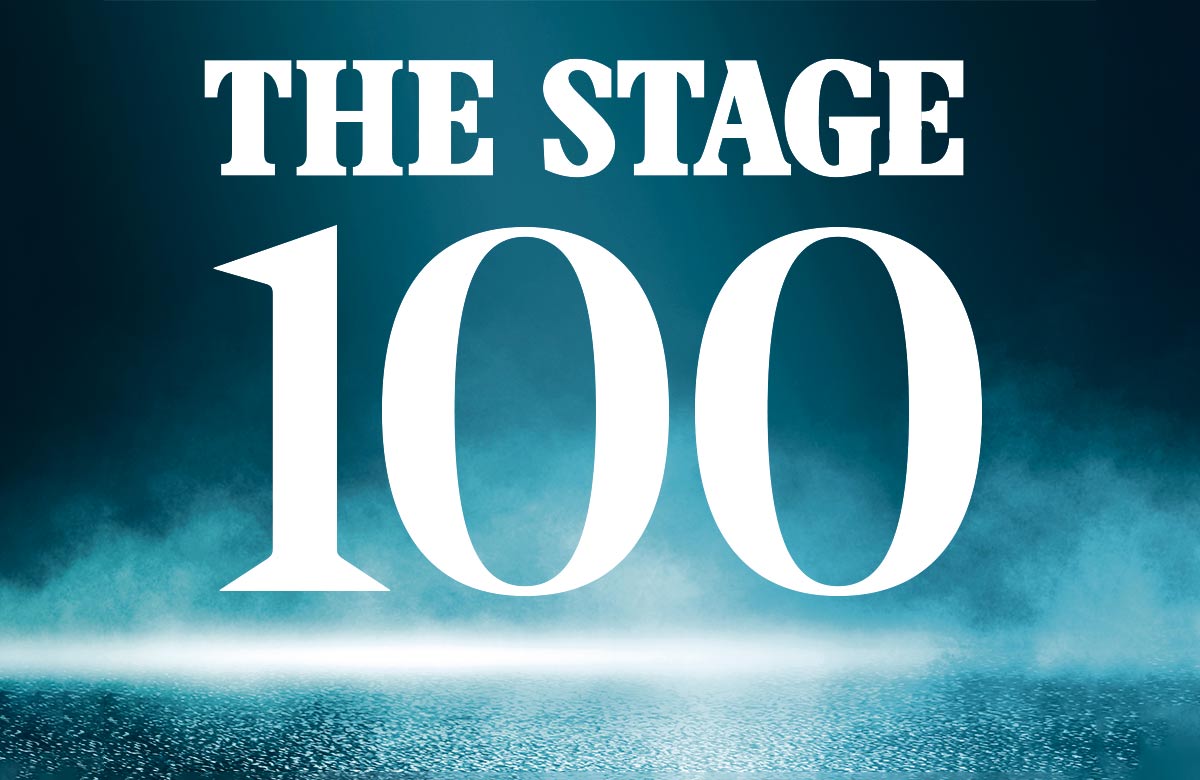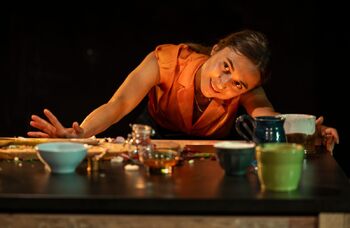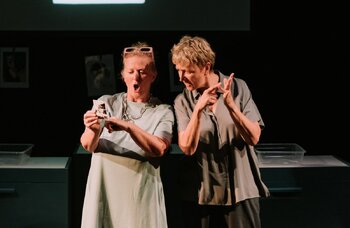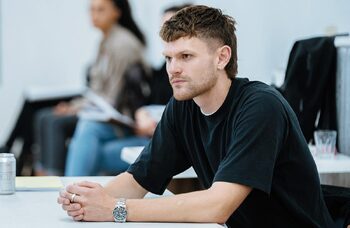The Ministry of Lesbian Affairs: ‘Theatre is for communal healing, but queer women haven’t had that’
Author Iman Qureshi and director Hannah Hauer-King tell Lyn Gardner about their show The Ministry of Lesbian Affairs, working collaboratively, the privilege of having a relationship with a venue and why gay women’s stories are so rarely heard
When Iman Qureshi’s Papatango New Writing Prize-winning play The Funeral Director – about a married Muslim woman forced to confront her true sexual identity – was being staged, she went to see Matthew Lopez’s The Inheritance, a sweeping panorama about gay, male history.
“I thought it was a stunning piece of work. I was blown away, but I was also sad that I couldn’t imagine what a women’s version of The Inheritance would be,” she says. “I couldn’t imagine a play that talks about what it means to be a lesbian today or the history and legacy that they have fought for over the years and how that carries through to now. I just thought: ‘I haven’t seen that play and I would love to see that play.’”
She talked with Hannah Hauer-King, who directed The Funeral Director at Southwark Playhouse and on tour, about how she felt, and the idea for The Ministry of Lesbian Affairs was born. It opens at London’s Soho Theatre early next month.
‘If you are a straight man writing a play you don’t feel you have to represent all straight men’
“I wanted to write about community and why lesbians and queer or gay women continue to find it so difficult to take up space and make a real identity for themselves in the world. Is it because there is more that divides you than you have in common?
“Hannah and I talked about the metaphor of a choir, where there are different voices, sometimes singing in harmony and sometimes not, and what that might mean and what friendships and fractures might occur and what is threatened and what it means to be a community, and how that community might renew itself.”
The show comes with a musical score that ranges from George Gershwin to 23-year-old singer-songwriter King Princess and Wagner to Tracy Chapman. It reflects the tastes and interests of the choir members but also generational differences and different experiences.
“When a community isn’t represented on stage, you feel a weight of responsibility when you try to represent it,” Hauer-King says. “We grappled with how we could represent every part of the community, and then we realised that if you are a straight man writing a play you don’t feel you have to represent all straight men, so this play can’t represent everyone. That would be an impossible task.”
The Ministry of Lesbian Affairs is a complex work with eight characters and multiple storylines. While it is definitely Qureshi’s play, having Hauer-King working alongside her as it developed has been helpful, and also points to the dramaturgical advantages of longer-term writer-director partnerships. At one point, when Qureshi was struggling, Hauer-King suggested she write a first draft almost entirely as unallocated dialogue and see whether characters would start to emerge. They did.
“If you work with somebody over time, you develop a shorthand in the way you work together,” says Hauer-King. “I guess it’s the difference between going to have a coffee with a stranger and with a friend. With a friend, so much is already shared and known so you can keep moving the conversation on and can do it more quickly.”
‘I hope this play means women can sit in the dark, hear their stories told and be reassured that they matter’
If the scale and ambition of The Ministry of Lesbian Affairs is a step up for Qureshi, is also a step up for Hauer-King and her new writing company Damsel. Most recently, the company put on Damsel Outside in August 2020, at the time of Covid restrictions on indoor performances. This comprised four new plays by Qureshi, Abi Zakarian, Benedict Lombe (whose debut play, Lava, has just won the Susan Blackburn Smith Prize) and Timberlake Wertenbaker, which were performed in outdoor locations across London.
Its biggest previous production was Tabitha Mortiboy’s underrated The Amber Trap at Theatre503 in 2019, a production The Stage followed through from inception to opening and that demonstrated the real financial outlay of producing on the London fringe.
Looking back, Hauer-King says The Amber Trap was a challenge and a growing-up experience for the company. But it was also one she recalls with fondness for the skill with which Mortiboy created her world, a great cast (including Fanta Barrie, who is also in The Ministry of Lesbian Affairs) and the way it made Damsel address “the financial, physical, emotional and spiritual reality of making work on the fringe and how we can look after ourselves better during that process”. Theatre503 has since changed its model and abolished all hire fees.
If Hauer-King and Qureshi’s collaboration on Ministry demonstrates the value of writer-director partnerships, then Hauer-King and Damsel’s eight-year relationship with Soho Theatre (she was resident assistant director there in 2014) shows how important company-venue relationships are. A production the size and run duration of this show – five weeks in the main house – would be seen as too great a risk if developed by an unknown company and director. It would simply never stand a chance of being co-commissioned in the way this show has been.
“As a freelancer, you always feel very destabilised, even without a pandemic,” says Hauer-King. “You never feel you have anything to hang on to and the pandemic has really exposed that in a way I don’t think people had noticed before.”
Having a building with a long association is “very grounding” she adds, after moving up the ranks at Soho, from helping the marketing team put up posters to directing in every space, except the main space, and now finally having the chance to do that.
“I feel like I know the building and they know me. That’s invaluable. I wish so many more freelancers had the chance to have relationships with a mentor-partner venue because without it, it’s so hard. Make no mistake, I can’t just go to Soho and say: ‘I want to do this show.’ That’s not how it works. They challenge and interrogate everything really rigorously. But, of course, having that long relationship helps. I feel very lucky.”
Qureshi has immersed herself in lesbian histories and queer politics during the writing of Ministry, considering what has been hard won and what has been lost along the way, and remains curious about the way gay women are perceived and treated.
“Gay men such as Tom Daley are seen as cool and trendy, but gay women are either hyper-sexualised to an unrealistic degree or completely desexualised to the point where they are seen as uninteresting or rendered invisible. When I was at school, ‘lesbian’ was absolutely the worst thing in the world you could be called. It was a word delivered with such disgust and received with such shame. It was a word that stood in for all sorts of other words like ‘freak’, ‘weirdo’ and ‘pervert’. The pain of that runs deep and I don’t think it has been acknowledged or addressed.”
Qureshi talks about going to see The Normal Heart at London’s National Theatre and being aware of sitting in a theatre full of gay men wiping their eyes and holding hands in the dark. “The theatre is such a place for communal healing, but I don’t think that queer and gay women have had that, and I think that is down to misogyny and patriarchy. So, if this play does one thing, I hope it means that those women can sit in the dark, hear their stories told and be reassured that they matter. That they are not invisible.”
The Ministry of Lesbian Affairs runs from May 5 to June 11. For more: sohotheatre.com/shows/the-ministry-of-lesbian-affairs
Opinion
Is there less lesbian representation in theatre than ever before?
Recommended for you
Opinion
Is there less lesbian representation in theatre than ever before?
Recommended for you
Most Read
Across The Stage this weekYour subscription helps ensure our journalism can continue
Invest in The Stage today with a subscription starting at just £7.99
